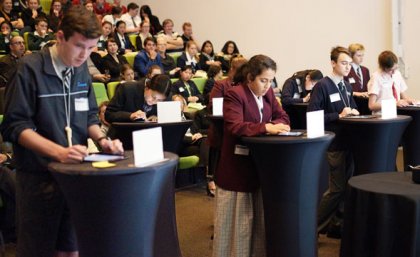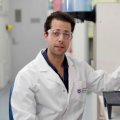
Queensland will host 23 of the world’s brightest high school students for the 2015 International Brain Bee neuroscience competition in Cairns from 20-26 August.
This year’s competition is locally organised by The University of Queensland’s Professor Linda Richards, who established the local Australian competition – the Australian Brain Bee Challenge.
Professor Richards, a neuroscientist at UQ’s Queensland Brain Institute said it was the first time the international competition had been held in the Asia-Pacific Region, and the chances of a local winner were promising.
“Australia held its first competition in 2006, and we’ve been competing in the International Brain Bee finals since then,” Professor Richards said.
“The International Brain Bee challenges students to learn about neuroanatomy and brain function, as well as how neurological diseases and mental illnesses occur and how we can combat these diseases through scientific research.
“In the past three years, Australia has won the international final twice and finished second once.
“Australia’s entrant this year is reigning national champion Jade Pham from James Ruse Agriculture High School, in Bankstown, New South Wales, and she has a great chance to win on home soil.”
The competition has four sections hosted at James Cook University – anatomy, histology, patient diagnosis, written short answer – and a live question-and-answer section held at the Cairns Convention Centre.
The competition forms part of the 2015 joint International Society for Neurochemistry, Asian Pacific Society for Neurochemistry and Australasian Neuroscience Society’s Biennial Meeting.
“I think the students will find it a really rewarding experience, both from a science perspective, and because it gives them a chance to get to know other competitors from around the world and hear about their experiences,” Professor Richards said.
“They’ll also attend the scientific meeting to get an idea of how scientific conferences run, and meet some of the scientists, so they can better understand what scientists do and how they might pursue a career in this area.”
The students also will spend a day at the Great Barrier Reef with UQ’s CoralWatch organisation, conducting experiments.
Students will be available for media interviews between engagements from Thursday 20 August.
The full list of competitors and countries is available here.
Media: Darius Koreis, +61 7 3346 6353, d.koreis@uq.edu.au; Professor Linda Richards, +61 7 3346 6355, +61 431 853 857, richards@uq.edu.au.
.jpg)









